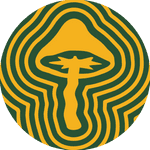

The recent resurgence of psychedelic medicine in scientific literature paved the way for studies indicating their therapeutic potential for treating various mental health disorders. Despite anecdotal and qualitative evidence suggesting that psychedelics may positively affect sexual functioning and well-being, this area has lacked any vigorous, systematic quantification and analysis of data. However, a recent study conducted by researchers from Imperial College London has become the first quantitative investigation into the effects of psychedelics on sexual functioning.
The study at a glance
The primary aim of the study was to determine the post-acute effects of psychedelics on sexual functioning and satisfaction. Researchers focused on data from two different independent studies: one large, naturalistic study and one smaller yet controlled clinical trial.
The naturalistic component of the research involved collecting self-reported data from individuals who have used psychedelics in non-clinical settings. These participants were not under direct observation or control by researchers, which allowed for the collection of data that reflected a wider range of psychedelic experiences. The inclusion of this study aimed to capture the broad and subjective impacts of psychedelics on sexual health as experienced by users in their own environments and contexts (1).
On the other hand, the controlled clinical trial offered a more structured investigation by comparing the effects of psilocybin therapy to those of escitalopram, an SSRI, on patients with depression. The more organized setup allowed researchers to control specific variables and observe the effects of psychedelics in a medicalized context. While the primary goal of the study was to assess the efficacy of the two substances in treating depression, the measured changes in sexual functioning and satisfaction arose as a secondary outcome (2).
Both studies utilized various measures to assess any changes in sexual functioning, including standardized surveys and questionnaires. These methods adhere to relevant guidelines and were designed to capture a wide range of sexual health aspects such as pleasure, communication, satisfaction with partners, and self-appearance.
Major findings
The participants of the naturalistic study noticed enhanced pleasure during sexual activities post-psychedelic use, suggesting that psychedelics could intensify sensory experiences and emotional connectivity during intimacy. They also saw improvements in their ability to communicate desires and preferences with their partners, which could be attributed to the ego-dissolving effects of psychedelics that could reduce barriers to open communication. The participants not only reported an increase in sexual satisfaction but also in their relationships overall, suggesting that the emotional and psychological effects of psychedelics may strengthen interpersonal bonds and enhance overall relationship satisfaction. Many of the participants also noted an openness to exploring new aspects of their sexuality and viewing sexual experiences as more meaningful or spiritual.
The controlled clinical trial showed similar improvements that were notably absent in the group treated with escitalopram. These results highlight the potential of psychedelics, particularly psilocybin, to enhance sexual well-being without the potential sexual dysfunction often associated with SSRIs.
Based on the combined body of evidence, researchers suggest that the observed results could be due to common effects associated with psychedelics, such as improvements in overall psychological well-being, reductions in depressive symptoms, and enhanced emotional and interpersonal connections (3).
A growing need for sexual dysfunction treatment
Major depressive disorder affects around 7.1% of the U.S. population and is one of the globally leading causes of disability. Symptoms could include extremely low mood, lack of motivation, and reduced feelings of pleasure. While sexual dysfunction is not classified as a core symptom of MDD, it is a common occurrence in MDD cases, causing decreased libido, difficulties in arousal, and absent or delayed orgasms. To treat MDD, patients are typically prescribed an SSRI; however, sexual dysfunction is a common side effect, as reported by 40 to 60 percent of individuals on these drugs (4). Sexual dysfunction can impact an individual’s quality of life, their self-esteem, and their relationship quality.
Although more research is needed to determine the efficacy of psychedelics on sexual health, this new study offers hopeful insights into alternative treatment paths that could significantly enhance the quality of life for individuals experiencing sexual dysfunction, especially those with concurrent mental health disorders like MDD. Future studies should replicate and further investigate these results, focusing on a broader demographic in order to fully understand the effects of psychedelics across different populations. Additionally, longitudinal studies could provide more information on the long-term impacts of psychedelic use on sexual well-being, further validating and expanding upon the initial findings.
References
- Barba, Tommaso, Hannes Kettner, Caterina Radu, Joseph M. Peill, Leor Roseman, David J. Nutt, David Erritzoe, Robin Carhart-Harris, and Bruna Giribaldi. 2024. “Psychedelics and Sexual Functioning: A Mixed-Methods Study.” Scientific Reports 14 (1): 2181. https://doi.org/10.1038/s41598-023-49817-4.
- Carhart-Harris, Robin, Bruna Giribaldi, Rosalind Watts, Michelle Baker-Jones, Ashleigh Murphy-Beiner, Roberta Murphy, Jonny Martell, Allan Blemings, David Erritzoe, and David J. Nutt. 2021. “Trial of Psilocybin versus Escitalopram for Depression.” New England Journal of Medicine 384 (15): 1402–11. https://doi.org/10.1056/nejmoa2032994.
- George, Jamilah R., Timothy I. Michaels, Jae Sevelius, and Monnica T. Williams. 2019. “The Psychedelic Renaissance and the Limitations of a White-Dominant Medical Framework: A Call for Indigenous and Ethnic Minority Inclusion.” Journal of Psychedelic Studies 4 (1): 1–12. https://doi.org/10.1556/2054.2019.015.
- Jing, Elizabeth, and Kristyn Straw-Wilson. 2016. “Sexual Dysfunction in Selective Serotonin Reuptake Inhibitors (SSRIs) and Potential Solutions: A Narrative Literature Review.” Mental Health Clinician 6 (4): 191–96. https://doi.org/10.9740/mhc.2016.07.191.


